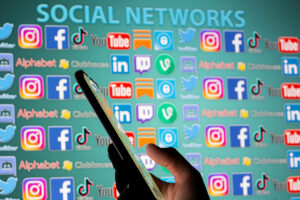By Aubrey Rose A. Inosante, Reporter
THE PHILIPPINES could combat the growing number of cybercrimes by following Malaysia’s recent move to require social media platforms to secure regulatory licenses to operate in the country, experts said.
However, there should be safeguards to ensure that regulations for social media networks would not supress free speech, they added.
Malaysia’s internet regulator is requiring all social media and internet messaging services that have more than eight million users to apply for a license by Jan. 1, 2025.
“Under the ASEAN (Association of Southeast Asian Nations) ambit, there have already been discussions in terms of how we can protect the consumers on this particular issue. I think the Philippines may want to take a leaf from what Malaysia has done,” Malaysia Ambassador to the Philippines Dato’ Abdul Malik Melvin Castelino bin Anthony told BusinessWorld on the sidelines of an event on July 30.
“Of course, we are very willing to share our knowledge and our process and how we enacted this law,” he added.
The Malaysian ambassador said the law is meant to ensure that cybercrime is not perpetrated in Malaysia, and to protect consumers and companies.
However, he said the law drew mixed reactions back home, raising concerns that it could stifle freedom of expression. “But for us, I think the whole idea is to protect the industry and also the consumers,” he said.
Social media networks that fail to apply for licenses with the Malaysian government by Jan. 1, 2025 would face fines, imprisonment or even suspension.
The Philippines is also trying to combat cybercrime such as financial fraud, scams, child pornography and ransomware.
From January to June this year, the Philippine National Police Anti-Cybercrime Group reported 8,177 cybercrime incidents, down 36.16% from a year ago. The bulk of these cybercrimes involved online selling scams, investment scams and debit or credit card fraud.
“We want to regulate OTTs (Over-the-top media services) and social media. Although, we would like to reiterate that currently, we have a good relationship with social media providers,” Jeffrey Ian C. Dy, undersecretary for Infostructure Management, Cybersecurity, and Upskilling of the Department of Information and Communications Technology (DICT) told BusinessWorld over the phone last week.
He said the DICT has no signed agreement with Meta, YouTube, and TikTok, but has access to their reporting mechanism, which was used when a “deepfake audio” of President Ferdinand R. Marcos, Jr. falsely ordering the military to attack China surfaced.
Mr. Dy said it is the discretion of these platforms to proceed to appropriate action, either tagging it as misleading or subject to removal if it violates the community guidelines.
For other social media platforms like X (formerly Twitter), DICT has no “working relationship” as X does not have an office in the country.
“Due to the lack of regulation, all of these are pakiusap (request). We need to appeal to them based on their community guidelines, most of which are more permissible than our laws,” he said.
For example, Mr. Dy said the Anti-Online Sexual Abuse or Exploitation of Children law requires that pornographic material that involves a child should be automatically blocked.
“In contrast, the evidence is now to prove that you have no negligence and compliance there and the product there on the platform, and then in the internet service provider. Because it is written in the law, it should also be blocked,” he said.
Mr. Dy said there are pending bills that propose regulation, but these should be balanced with the rights and freedoms protected by the Constitution.
“We leave it up to the legislature to define harmful content in a harmful media,” he said.
House Bill No. 129 mandates the authentication of identity before the creation of a social media account, while House Bill No. 8789 criminalizes the creation of fake news.
Surigao del Norte Rep. Robert Ace S. Barbers called on the Philippines to implement a social media policy similar to Malaysia, noting how these outlets have been used to slander people.
“For those who use the social media platforms to destroy someone’s name, someone’s identity, someone’s image, that is not freedom of expression,” he said in a phone call last week.
“[In] my opinion, maybe we should use the Revised Penal Code as our basis. What is the definition of slander? Those are crimes punishable under the Revised Penal Code. If we identify what the law will do, maybe we won’t be far from our existing laws.”
Mr. Barbers said social media users should be made aware of possible penalties that can be imposed for violations.
Sam V. Jacoba, founding president of the National Association of Data Protection Officers, said the country can learn a lot from this approach by Malaysia.
“It is a welcome development as for the longest time, social media platforms have been sidestepping their accountability on the content posted and proliferated on their platforms,” Mr. Jacoba told BusinessWorld via Viber message on July 29.
More than 80 million Filipinos have social accounts, and they are often vulnerable to misinformation, disinformation, and foreign malign influence, he said.
“Perhaps, they are more focused on generating more revenues than securing the digital lives of their users. Just benchmark their investments in sales and marketing activities versus their investments in data and content protection,” he said.
Mr. Jacoba even suggested that the Philippines could compel owners to allocate a portion of their net revenues, like 20% in fighting cyber criminals and scammers on their platforms.
BusinessWorld sought comments from social media platforms Meta, X, and TikTok but has not received replies as of press time.
